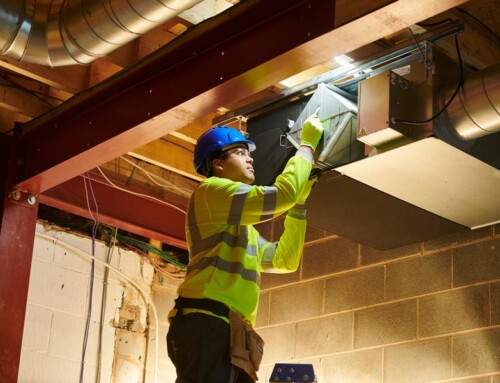Government RFP Process: How Cleaning Vendors Can Compete

Government RFP Process: A Guide for Cleaning Industry Vendors
Navigating the government RFP process can be intimidating—especially if you’re a small to mid-sized cleaning or facility management company new to public contracts. But landing a government contract can significantly boost your revenue and reputation.
This post explains the stages of the government RFP process in plain terms, with insights tailored to the cleaning industry. Whether you’re bidding on municipal janitorial services or a federal sanitation contract, this guide will help you prepare more confidently—and more competitively.
What Is the Government RFP Process?
A Request for Proposal (RFP) is a formal document issued by a government agency to solicit bids for a specific service or project. The process is designed to ensure transparency, fairness, and value for taxpayer dollars.
In cleaning and facility services, RFPs are commonly issued for:
- Janitorial and custodial services
- Waste management
- Floor care and carpet cleaning
- Disinfection and sanitation services
- Specialized cleaning (e.g., medical or industrial)
Agencies issue an RFP when they’re ready to select a vendor, often following pre-solicitation notices or Requests for Information (RFIs).

Key Phases of the Government RFP Process
-
Pre-Solicitation Phase
Before the RFP is published, agencies may conduct research and outreach. You might see:
- Sources Sought Notices
- Industry Days
- Market research surveys
Tip: This is a great time to get on their radar. Register in vendor databases like SAM.gov and local procurement portals.
-
Issuance of the RFP
The RFP is officially released with details including:
- Scope of work
- Contract length
- Submission instructions
- Evaluation criteria
- Pricing requirements
Read the entire document carefully—many disqualifications happen because vendors overlook formatting or submission rules.
-
Proposal Preparation
This is where you’ll spend most of your time. Your proposal usually includes:
- Technical approach (how you’ll perform the work)
- Past performance (references and project summaries)
- Pricing (bid tables or cost breakdowns)
- Compliance documents (licenses, certifications, bonding)
Struggling with proposal structure? ISSA offers consulting services to help vendors build better bids.
-
Q&A Period and Amendments
After the RFP is released, agencies often allow a period for questions. Use this time to:
- Clarify unclear language
- Confirm site conditions
- Understand evaluation methods
Be sure to check back for amendments—changes to the RFP that could affect your pricing or proposal requirements.
-
Submission and Deadline
Government bids have strict deadlines. Late submissions are almost always rejected. Ensure:
- Your documents are complete
- You’ve followed all formatting rules
- You submit through the correct channel (email, portal, mail)
Some RFPs require both digital and physical copies.
-
Evaluation and Award
Evaluators score proposals based on predefined criteria, usually including:
- Technical capability
- Pricing/value
- Experience/past performance
- Compliance
Lowest price doesn’t always win—especially for quality-sensitive services like cleaning.
If selected, you’ll move into the contract award and negotiation phase. If not, you can usually request a debriefing to understand how to improve.
Tips for Success in the Government RFP Process
Understand the Lingo
Common terms you’ll encounter:
- FOIA – Freedom of Information Act (your bid could become public)
- FAR – Federal Acquisition Regulation (rules for federal contracts)
- SOW – Scope of Work
- NAICS Code – Industry classification for your business
Get Registered and Certified
You’ll often need:
- A DUNS number (or UEI)
- SAM.gov registration
- Small business certifications (e.g., WOSB, VOSB, MBE)
These credentials can open doors to set-aside contracts and improve your competitiveness.
Price Smart, Not Just Low
Government buyers are looking for best value, not just lowest cost. Use accurate labor estimates, realistic production rates, and fair margins. Tools like ISSA’s Cleaning Times can help improve your accuracy.
Build Relationships
Attend pre-bid meetings, site visits, and agency events. Introduce yourself and ask smart questions. Often, the first impression you make is long before the bid submission.
Common Mistakes to Avoid
- Missing deadlines
- Failing to meet formatting or submission requirements
- Copy-pasting from previous RFPs without customization
- Leaving out required documents or certifications
- Underestimating costs or overpromising in scope
Get support from experts who know what government buyers expect. ISSA Consulting Services can help you build compliant, compelling bids from start to finish.
Final Thoughts: Ready to Compete?
The government RFP process can be complex, but it’s a major opportunity for cleaning and facility management professionals. With the right preparation, you can stand out from competitors, even those with more experience.
If you’re unsure how to position your company, craft a winning proposal, or price effectively, ISSA’s Consulting Services is a trusted partner ready to help.
Don’t sit out the next opportunity, get the support you need to go after it with confidence.
Internal Resources for Cleaning Professionals
- ISSA Consulting Services: RFP coaching, pricing guidance, and proposal reviews.
- CIMS Certification : A valuable third-party credential often recognized by government agencies.
- ISSA Education : Training courses to build operational and bidding skills.
External Resources
- SAM.gov: The primary registration and bidding platform for U.S. federal contracts.
- SBA.gov: Resources for small business certifications and government contracting.
















